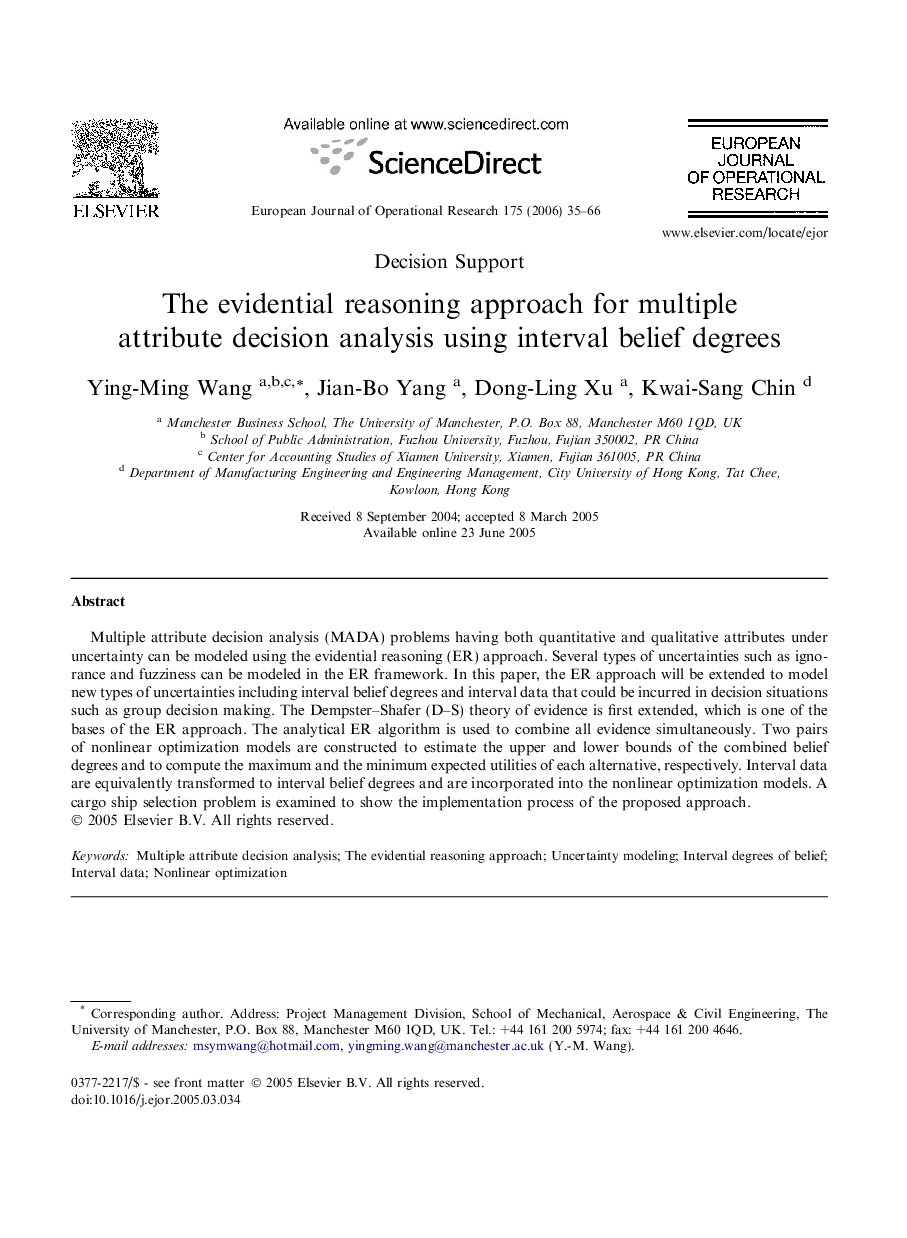| Article ID | Journal | Published Year | Pages | File Type |
|---|---|---|---|---|
| 482336 | European Journal of Operational Research | 2006 | 32 Pages |
Multiple attribute decision analysis (MADA) problems having both quantitative and qualitative attributes under uncertainty can be modeled using the evidential reasoning (ER) approach. Several types of uncertainties such as ignorance and fuzziness can be modeled in the ER framework. In this paper, the ER approach will be extended to model new types of uncertainties including interval belief degrees and interval data that could be incurred in decision situations such as group decision making. The Dempster–Shafer (D–S) theory of evidence is first extended, which is one of the bases of the ER approach. The analytical ER algorithm is used to combine all evidence simultaneously. Two pairs of nonlinear optimization models are constructed to estimate the upper and lower bounds of the combined belief degrees and to compute the maximum and the minimum expected utilities of each alternative, respectively. Interval data are equivalently transformed to interval belief degrees and are incorporated into the nonlinear optimization models. A cargo ship selection problem is examined to show the implementation process of the proposed approach.
